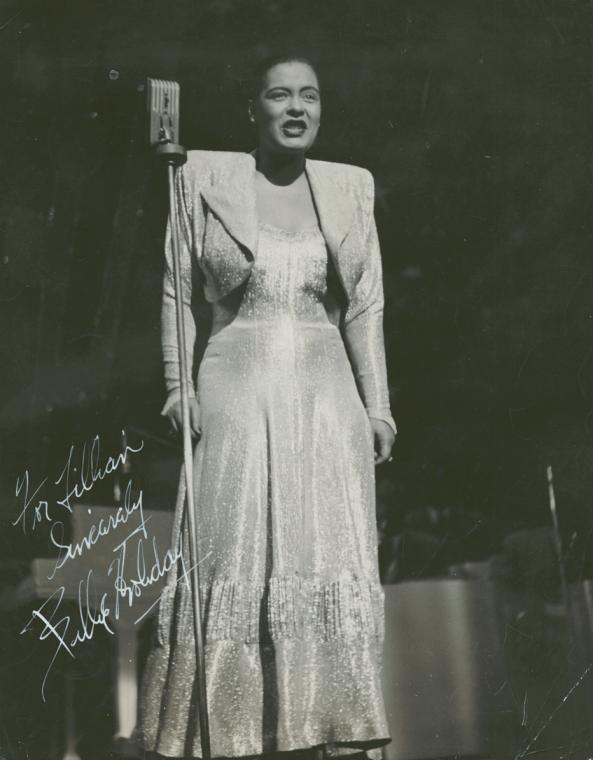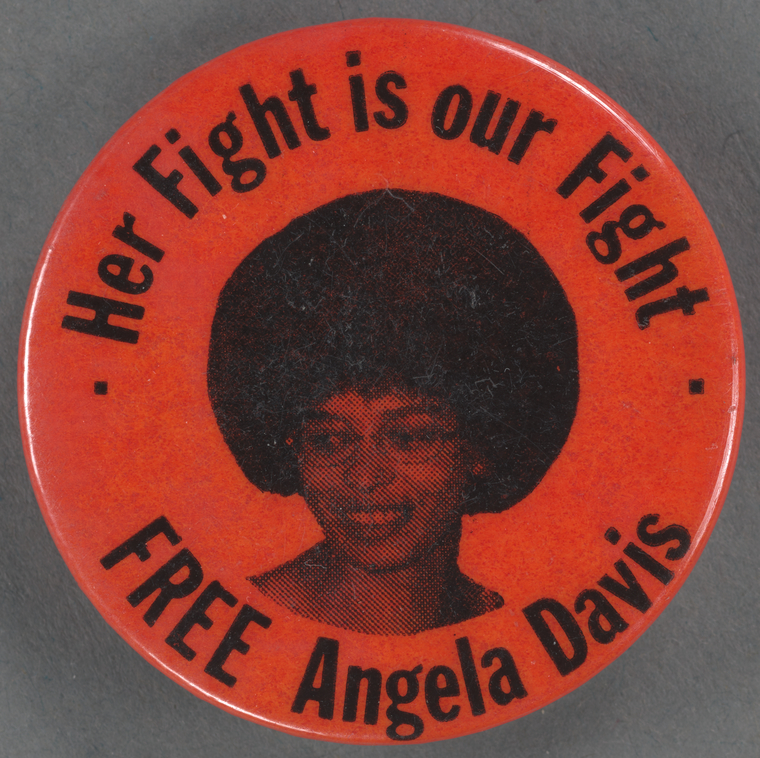Courtroom Battles for Justice: Garvey, Holiday, and Davis
Courtroom Battles for Justice, a two-part blog series, focuses on court cases whose verdicts still spark in-depth discussions. In this second part, we look at prominent activists Marcus Garvey, Billie Holiday, and Angela Davis who by advocating for Black nationalism, singing about the lynching of Black people, and supporting communism and racial equality, respectively, expanded conversations about liberation while also drawing unwanted attention from law enforcement.
You can use the Schomburg Center’s resources to learn more about the court cases Garvey, Holiday, and Davis faced. The verdicts still spark in-depth discussions in the Black community and by activists of all races.
Garvey v. The United States

Marcus Garvey emigrated to the U.S. from Jamaica in 1916 where he established the Harlem branch of the Universal Negro Improvement Association which he had founded in 1914. The U.N.I. A. and its newspaper, The Negro World, promoted Black nationalism and Black people creating their economic opportunities. Garvey also established the Black Star Line, a shipping and passenger line.
Garvey’s activism and popularity caught the attention of J. Edgar Hoover and the Bureau of Investigation, the precursor to today’s Federal Bureau of Investigation.
Financial and operational problems plagued the Black Star Line, which eventually went bankrupt. The government charged Garvey with mail fraud because of how the company sold its stock to the public. Garvey received a five-year sentence in 1923. The case eventually went to the U.S. Supreme Court where Garvey lost his appeal, and was subsequently deported in 1927.
Resources:
The Manuscripts, Archives and Rare Books Division holds papers of Garvey’s U.N. I. A. materials. It includes correspondence, financial records, meeting minutes, and scrapbooks.
- Universal Negro Improvement Association Collection
Papers consist mainly of the office files of the Central Division of U.N.I.A. It includes administrative records and correspondence.
- Universal Negro Improvement Association Miscellaneous Collection
This group of collections contains memorabilia such as membership certificates and loan books, Black Star Line certificates, plus receipts for shares in the shipping line. It spans the early 1920s.
- The Trial of Marcus Garvey: The Official Transcripts of Marcus Garvey’s Mail Fraud Trial, 1923
The microfilm is a facsimile of the 1923 trial. It contains over 2,800 pages of testimony.
- United States of America vs. Marcus Garvey: Was Justice Defeated?
The microfilm contains the brief for the United States Circuit Court of Appeals for the Second Court.

The United States v. Billie Holiday
In 1939, Billie Holiday recorded “Strange Fruit,” which spoke out against the lynching of Black people in the South. The song's success brought her to the attention of the Federal Bureau of Narcotics and its commissioner Harry Anslinger. The agency was part of the U.S. Department of the Treasury. Anslinger wanted Holiday to stop performing the tune. He used Holiday’s struggles with heroin, the negative connotations of jazz music at the time, and his prejudice against Black people as a reason for investigating the singer.
In 1947, Holiday pleaded guilty to drug possession. The judge sentenced her to a year and a day in prison. Despite her battle with substance abuse and government surveillance that followed in later years, Holiday continued to risk her career and life by singing “Strange Fruit.”
Resources:
- Billie Holiday: The Last Interview and Other Conversations
This book contains a collection of interviews throughout Holiday's career. There is also an interview from her deathbed, where police are there to arrest her for a possible parole violation.
- Billie Holiday: A Portrait
Located in the Moving Image and Recorded Sound Division, the videocassette covers Holiday’s childhood and career highlights.
- If You Can’t Be Free, Be a Mystery: In Search of Billie Holiday
Author Farah Jasmine Griffin separates the myth and legend of Lady Day to reveal the joy, humor, and pain of the woman who made each song uniquely her own.
The People of the State of California v. Angela Y. Davis

In 1970, Jonathan Jackson burst into a California courtroom in an attempt to free inmates on trial and take hostages in exchange for his brother George, who was imprisoned at San Quentin. The failed kidnapping, resulting deaths, and Jackson’s friendship with Davis resulted in her being implicated with the crimes.
An all-white jury found Davis innocent of murder, kidnapping, and criminal conspiracy in 1972.
Resources:
- Angela Davis: An Autobiography
Angela Davis tells her story in our own words.
- The Angela Davis Legal Defense Collection
The collection includes legal materials and other documents from Davis’s case. They are available to view at the Manuscripts, Archives and Rare Books Division.
- Free Angela Davis and All Political Prisoners
Written and produced by Shola Lynch, curator of the Moving Image and Recorded Sound Division, the documentary looks at Davis’s early life as educator, a failed kidnapping where she is implicated, and her legal case.
- “Open Letter to My Sister, Miss Angela Davis”
James Baldwin penned a public letter to Davis, expressing his support. “We know that we, the blacks, and not only we, the blacks, have been, and are, the victims of a system whose only fuel is greed, whose only god is profit,” wrote Baldwin in 1970. See the full text in the Digital Collections.
If you missed part one of Courtroom Battles for Justice, you can read it now. The first installment focuses on court trials that symbolized the racial tension of the day when seeking a fair trial, holding police accountable for their conduct, and the struggle for voting rights in the U.S.
Want to stay up-to-date on the Schomburg Center’s events, blog posts, research guides, and more? Sign up for the Schomburg Connection newsletter.
Join the Schomburg Center on Facebook, Twitter, and Instagram.
Read E-Books with SimplyE
 With your library card, it's easier than ever to choose from more than 300,000 e-books on SimplyE, The New York Public Library's free e-reader app. Gain access to digital resources for all ages, including e-books, audiobooks, databases, and more.
With your library card, it's easier than ever to choose from more than 300,000 e-books on SimplyE, The New York Public Library's free e-reader app. Gain access to digital resources for all ages, including e-books, audiobooks, databases, and more.
If you don’t have an NYPL library card, New York State residents can apply for a digital card online or through SimplyE (available on the App Store or Google Play).
Need more help? Read our guide to using SimplyE.